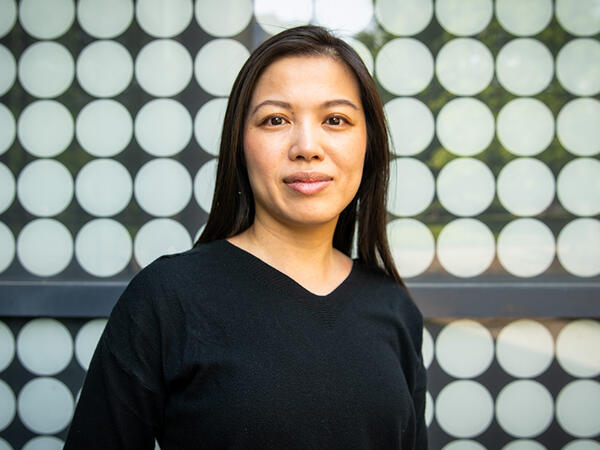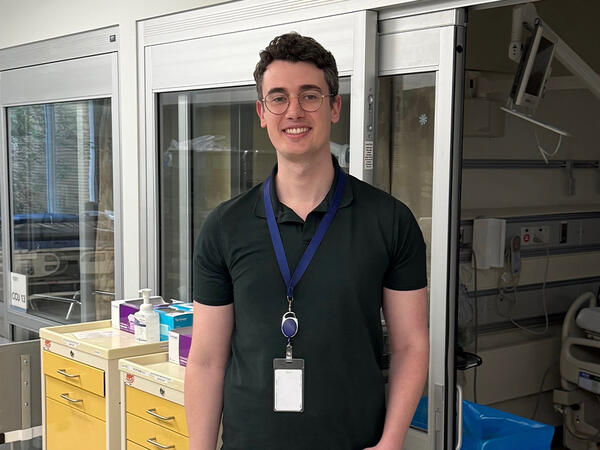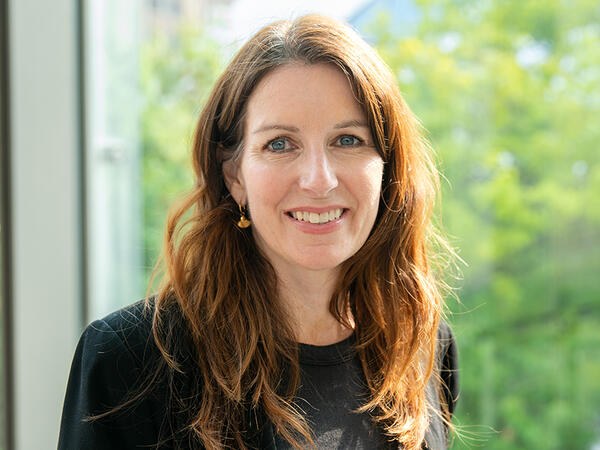When Suman Birdee was considering possibilities for her graduate degree, her personal experience with vision changes and blind spots were deciding factors in the research she wanted to pursue. Birdee experiences ocular migraines, which can cause dark spots in vision during a migraine headache. In her case, the spots are temporary, but she became interested in the similar but permanent changes that happen in age-related macular degeneration (AMD), an eye condition that often leads to vision loss in older adults.
Her experience, and a desire to conduct translational research, inspired her to pursue a master’s degree in pharmaceutical sciences at the Leslie Dan Faculty of Pharmacy with Professor Tim Corson. Professor Corson's research is focused on abnormal blood growth (neovascularization) in eye diseases.
“Professor Corson’s lab aligns with my interests in drug discovery and formulations and translational research, which I believe is essential to make meaningful advancements in current treatments,” says Birdee. “I was especially drawn to this lab because of its intriguing discoveries that are paving the way for novel treatments for neovascular-related eye diseases.”
Birdee completed a joint Bachelor of Technology and certificate in business management at McMaster University, specializing in biotechnology. After graduating in December 2023, she began looking at options for a graduate program, specifically at U of T, and became interested in Corson’s eye disease research. Corson’s research focuses on looking for proteins that may promote abnormal blood vessel growth in eye diseases that could serve as targets for new drugs.
One arm of the research program is focused on development of AMD, which has both wet and dry forms. Wet AMD is less common but has treatment options, while dry AMD is more common but with fewer treatments.
“Professor Corson’s lab aligns with my interests in drug discovery and formulations and translational research, which I believe is essential to make meaningful advancements in current treatments.”
Birdee first came to Corson’s lab at the start of this summer through the undergraduate summer research program, and she is continuing in the lab as a master’s student. With support of an NSERC Canada Graduate Student–Master’s award, Birdee will be examining how dry AMD develops, specifically whether a protein involved in wet AMD is also involved in dry AMD, which may help to inform treatments for dry AMD. Though Birdee had experience in technology and engineering research during her undergraduate degree, she says that she is looking forward to gaining more experience with biomedical research and cell cultures.
“I am excited to learn more about this type of research so I can apply these skills in other research or industry,” she says. “Even though I have just started, I am learning to navigate the challenges of research, such as designing experiments and troubleshooting unexpected results. These skills are critical for any scientific career and will prepare me for more advanced research roles in the future.”
She is also looking forward to becoming involved in student groups and meeting other graduate students at the Faculty and exploring downtown Toronto.
“With the lab's recent relocation from Indiana University, I am thrilled to be one of the first graduate students to join and contribute to its growth at the University of Toronto,” she says.
More News
Image

Welcoming Ivy Lam as Academic Lead in Climate, Health & Sustainable Care
Assistant Professor Lam will guide the Leslie Dan Faculty of Pharmacy's efforts to embed environmental sustainability across the Faculty.
Read More
Image

Pharmacy alum’s research shows how full-scope practice improves cancer care
Honoured with a national award, Adrian de Boer says his residency experience was a powerful reminder that he's making a meaningful change to the pharmacy profession.
Read More
Image

Pharmacy alum passionate about helping community pharmacists practice to full scope
As a pharmacy leader at Rexall, Heidi Wittke uses frontline experience to lead initiatives that improve patient care
Read More

